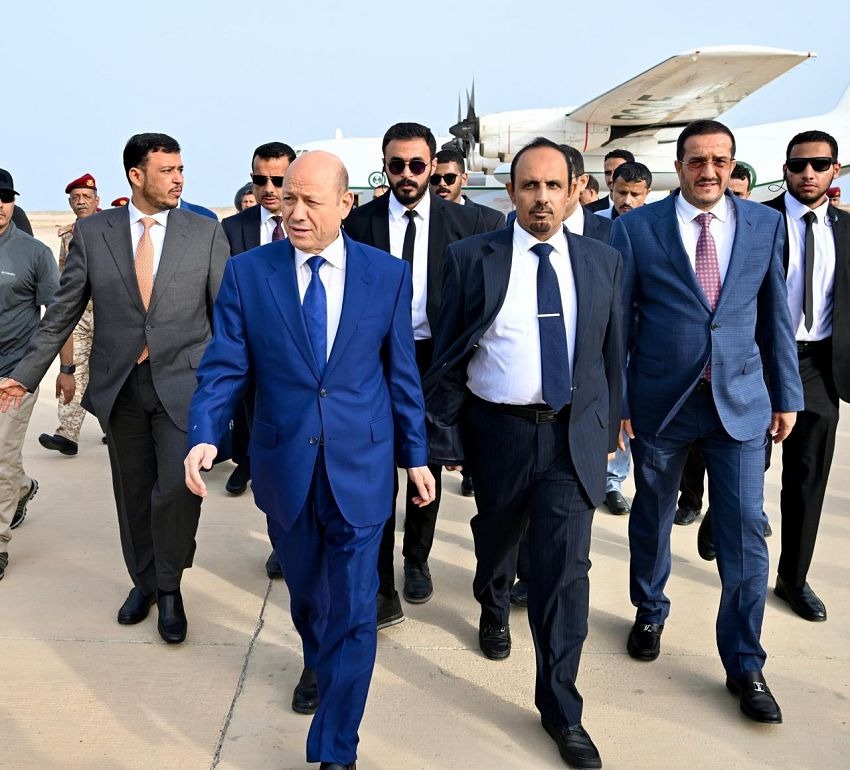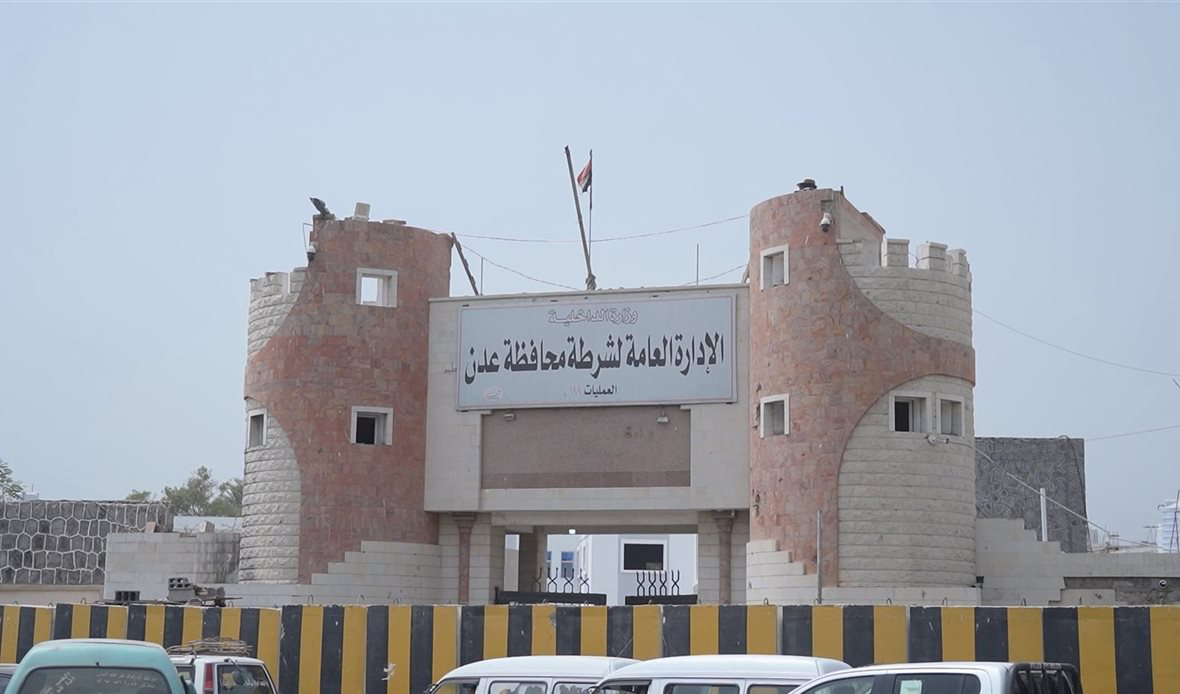
Barran Press
Yemeni Presidential Leadership Council head Rashad Al-Alimi, during his arrival in Mukalla, the capital of Hadhramaut governorate (southeastern Yemen) on Saturday, July 27, affirmed the council and government's understanding of the financial situation in the province and their commitment to sharing in both successes and failures with the local authorities.
Al-Alimi, accompanied by council members Abdullah Al-Alimi and Othman Majali, made the statement to the media, as reported by the official Yemeni News Agency (Saba).
He highlighted the council and government's commitment to strengthening the role of local authorities in Hadhramaut and all liberated governorates. He emphasized their support for local authorities' efforts in achieving security, stability, and service improvement, "befitting the role and stature of Hadhramaut governorate and its symbolic status as a model for a state of institutions and the rule of law," he stated.
Al-Alimi praised the humanitarian and development interventions of the countries of the Saudi-led coalition supporting legitimacy, particularly Saudi Arabia and the United Arab Emirates, in Hadhramaut and their demonstrable impact across all levels.
He expressed his pleasure at "visiting Hadhramaut governorate, meeting with its local and community leaders, and discussing ways to support the local authority's efforts in fulfilling its inevitable obligations to citizens in various fields."
This is Al-Alimi's second visit to Hadhramaut since assuming the presidency of the Presidential Council in April 2022. His previous visit on June 25, 2023, saw the unveiling of 20 projects funded by Saudi Arabia with a total of 1.2 billion Saudi riyals.
According to Saba, this current visit to Hadhramaut comes as the province "faces intertwined financial and development challenges since the terrorist attacks by the Iranian-backed Houthi militias on oil facilities, export ports, cargo ships, and international shipping lanes."
The agency reported that during the visit, Al-Alimi will hold meetings with local authority leadership, the executive office, military and security leaders, political and social figures, media personalities, and representatives of civil society organizations. The objective is to inform them of the latest developments on the national scene and efforts to enhance the role of government institutions in improving service and living conditions for the province's residents, as well as to encourage national investments.





